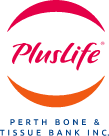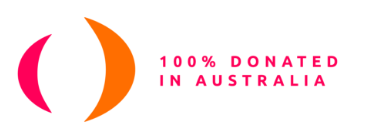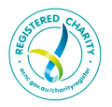Coolbinia teenager Chloe Bettane is embracing a new lease on life – thanks to an anonymous bone donor who helped save her the trauma of a leg amputation.
After a harrowing year, the 17-year-old is now preparing to embark on an exciting overseas adventure in Israel – a trip that may not have been possible if not for the dedicated work of PlusLife, WA’s bone and tissue bank, and sophisticated medical knowhow.
Chloe was just a week away from sitting her Year 12 exams last year when she was delivered the devastating diagnosis of an osteosarcoma – a tumour in her left femur.
Just four days after completing her exams, the Carmel School student was whisked into surgery to remove the tumour, with doctors transplanting allograft bone from PlusLife and a metal rod into her thigh.
Chloe said she visited her GP in July after noticing a lump on her left thigh and experiencing tiredness, which she suspected was low blood iron. Unperturbed, the GP gave her a referral for an ultrasound in case the lump grew or became painful.
“He didn’t seem concerned at all about it,” she said.
But by October the lump was feeling sore. An x-ray showed some abnormalities, but did not raise concern from the radiographer. It was not until her mother, Ros, sought a second opinion that a CT scan revealed the low grade tumor.
Now the family is sharing their experience in a bid to raise awareness about bone and tissue donation and the important work of PlusLife, WA’s bone and tissue bank, as it prepares to open its $10 million state-of-the-art facility in Midland on March 24.
Chloe said many people did not even realise bone and tissue donation was possible.
“The work of PlusLife is so important. I didn’t even know the bone and tissue bank existed until I was put in the position where I needed a bone graft,” Chloe said.
“PlusLife is such an important organisation. I cannot begin to understand what life would have been like if it was not around to help. Without the selfless donor and this amazing organisation, my prognosis may have been very different.”
“PlusLife makes a real difference to the lives of many people just like me.”
Chloe said the family was extremely thankful for the bone graft donation and called on others to consider becoming tissue donors.
Orthopaedic surgeon and PlusLife medical director Professor Richard Carey Smith said PlusLife helped provide sarcoma patients with better health outcomes through its management of bone and tissue donations.
“With correct early diagnosis and management we can cure people of disease. We have a high success rate, with some of these tumours a 90 to 100 per cent cure rate,” Professor Carey Smith said.
“If this had happened 30 or 40 years ago it would have been a different story. There is a high chance that Chloe would have ended up with an amputation through the proximal thigh, so it would have been a very different story for her.”
PlusLife managing director Anne Cowie said PlusLife had helped improve thousands of lives through generous donations of Australian tissue. Since starting operations in 1992, PlusLife has provided more than 18,000 grafts to more than 10,000 recipients.
“We hope to be able to help many more people in the future with the opening of our new $10 million facility in Midland, which includes two tissue processing cleanrooms, freezer storage, a tissue testing laboratory and a dedicated research laboratory,” Mrs Cowie said.
“These resources mean we will be able to continue our important work managing bone and tissue donations in WA as we strive to meet growing demand for our services.”
PlusLife, which manages bone and tissue donations in WA, has two donor programs. Living patients having hip replacement surgery can donate the ball part of their hip, which is used commonly in a ground-up form for children with spinal deformities. And, like organ donation, bone, tendons and ligaments can be donated after death with consent from next-of-kin.
Grafts are used for patients undergoing life-changing operations, such as surgery to treat spinal deformities, complex joint surgery and treatments for patients with dental and facial bone loss. In many cases it has saved children the distress of a limb amputation.
“While organ donation rightly has a high community profile and is known as a life-saving gift, many people are not aware that tissue donation is actually possible, or that their decision to be a tissue donor can have life-changing benefits for patients,” Mrs Cowie said.
“One deceased tissue donor has the potential to improve the wellbeing, sight and mobility of up to 60 people.”
To register as a bone, tissue or organ donor, visit www.donorregister.gov.au or via Medicare online.



